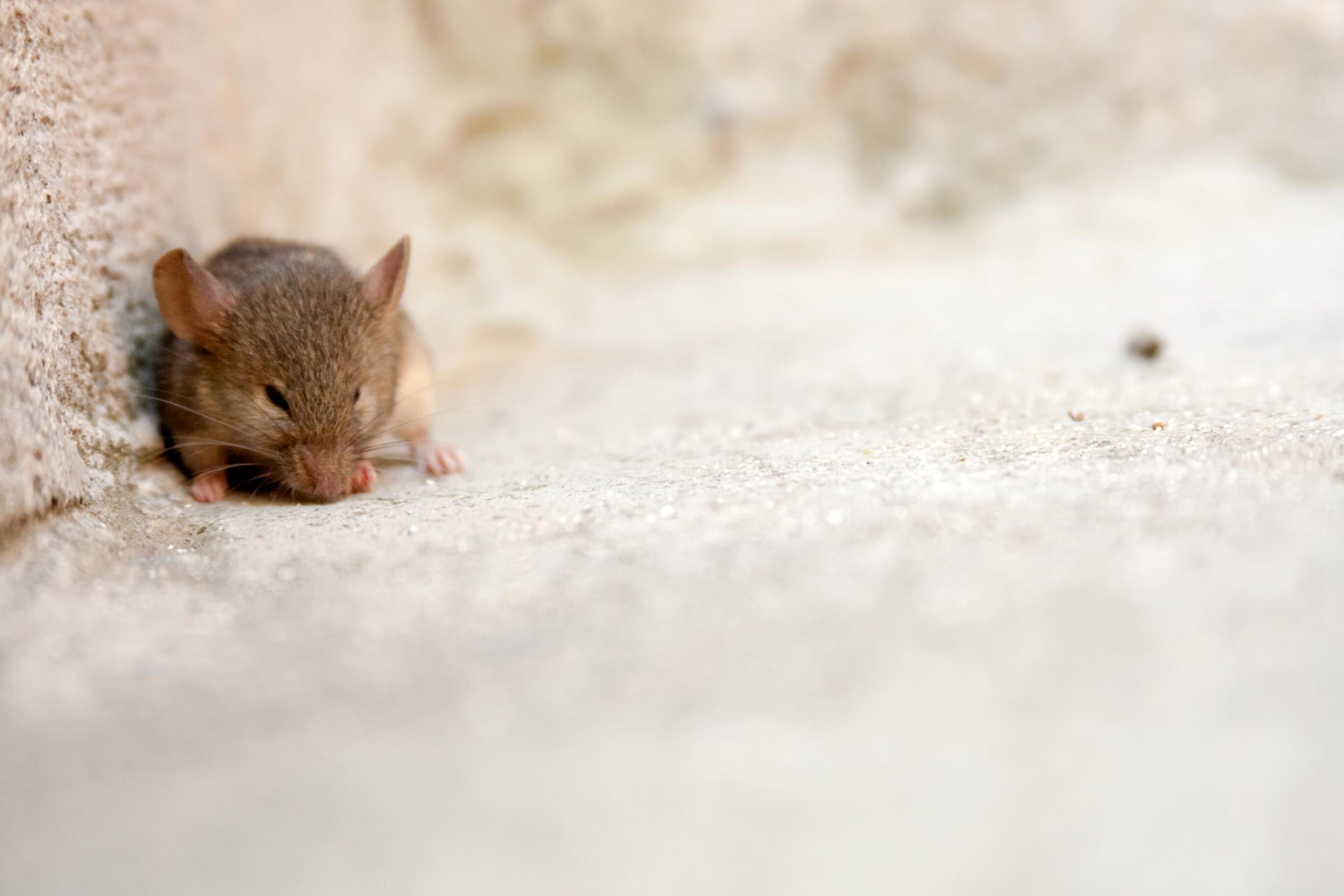Mice are some of the most common pests and they annoy millions of households around the globe. In addition to getting into and contaminating food, they also damage property and belongings with their constant chewing. And they’re carriers of many diseases that can be transmitted to people and pets.
Keeping mice out of your house can be a chore — but there are a few things they avoid. These things won’t likely help in their extermination, but some of them can potentially help lessen their numbers or prevent an infestation from happening in the first place.
Some of the things that scare mice are potential predators. These include cats, dogs, rats, owls, and even humans. Mice are also startled by loud sounds, ultrasonic sounds, sounds of distress from other mice, and bright lights.
1. Humans

Even though mice will nest and build colonies in human dwellings, mice are actually afraid of people. To mice, humans are a potential threat, so they usually hide when humans are around.
Avoidance may explain why mouse bites are so rare. They do happen, but usually as a defensive move rather than an offensive one. Bites usually happen when they’re cornered or being handled by a human.
However, mouse bites can transmit several diseases, including plague. It’s best not to try to handle a mouse you find inside your house.
2. Cats
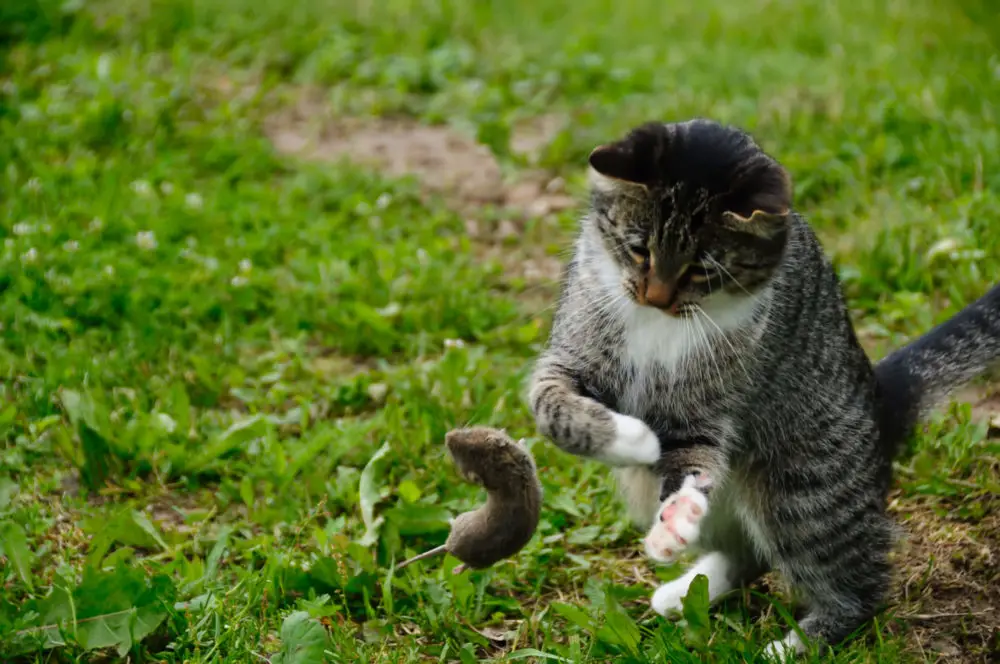
Popular culture tells us this one is a no-brainer. Cats are predators and often hunt small rodents like mice. But did you know that there’s a protein in the sweat and urine of cats that mice can detect? Mice will avoid this smell, which means having a cat around could help prevent mice from moving in.
But while cats are prolific hunters, if you already have a mouse problem, they probably won’t be able to handle it alone.
3. Dogs
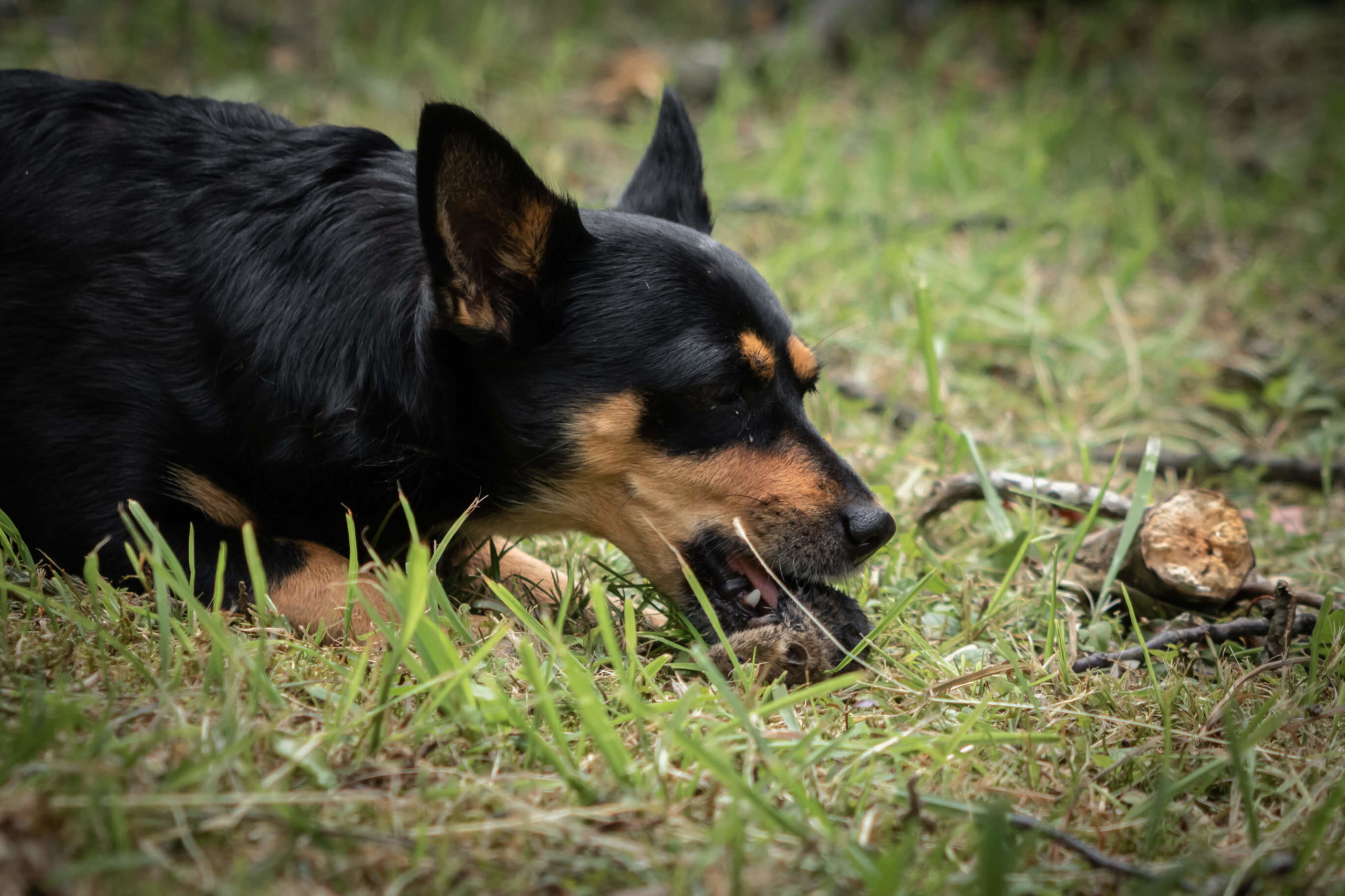
Dogs are also predators and there are several breeds of dogs that were developed specifically for controlling rodent populations. And while many dogs have a tendency to chase, that doesn’t mean they’ll kill a mouse should they catch it.
Killing mice might not even be a healthy habit for Fido anyways, since there are plenty of harmful diseases mice can transmit to dogs. And while mice will avoid dogs while they’re present, but may continue activity once the dog is out of the room.
4. Rats
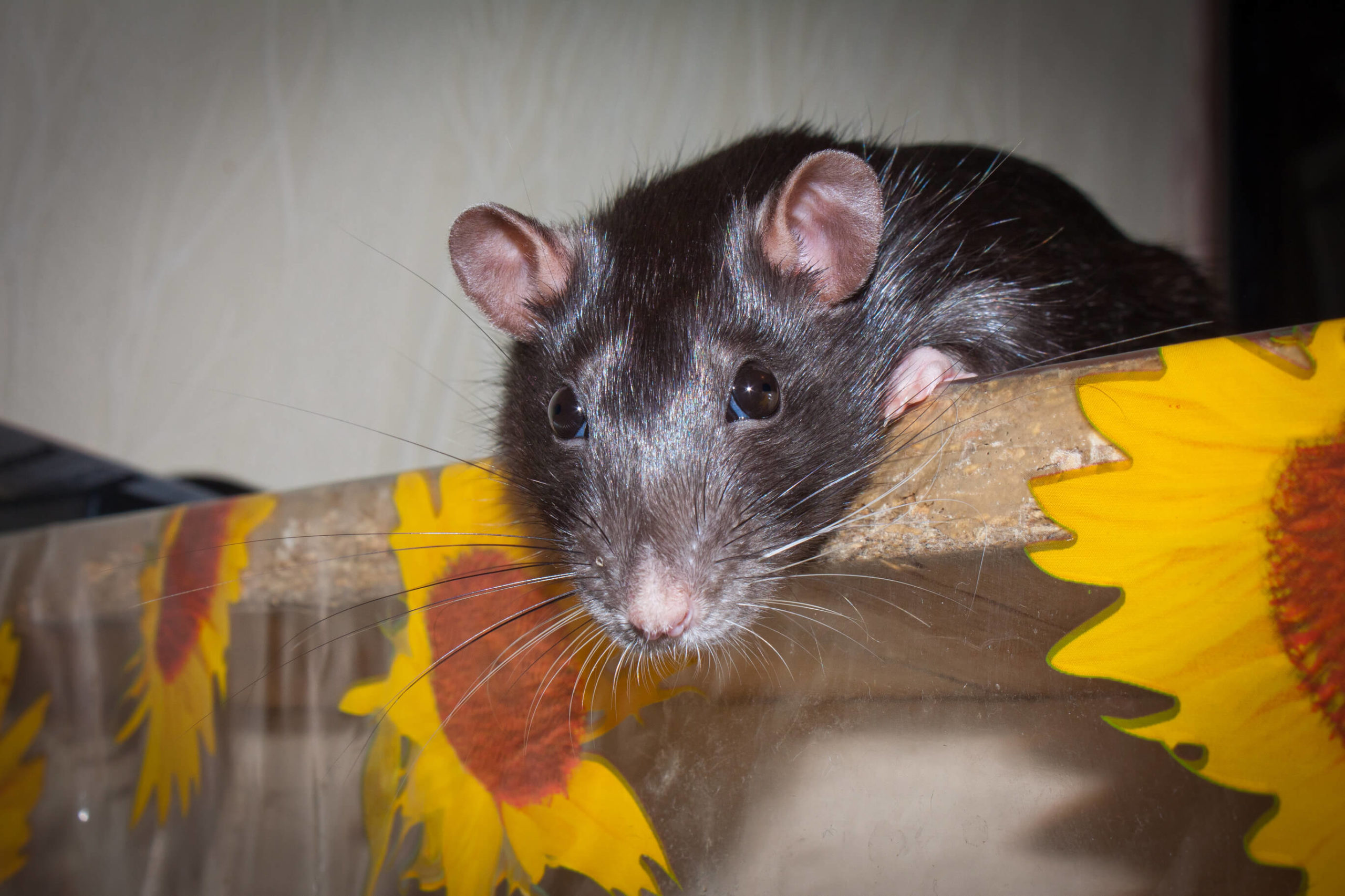
Rats, a larger rodent cousin to mice, have been known to kill mice. Mice are much smaller and can end up on the menu if they’re not careful.
Similar to the way they sense that cats are around, mice detect certain odors from the proteins found in rat urine as well. When they detect this protein, mice will avoid the area.
Finding a lot of dead mice in combination with signs of continued rodent activity may help you identify a rat problem — having rats isn’t exactly a solution.
5. Owls

Owls are an efficient and effective predator of mice. Having an owl, especially barn owls, nearby could help deter mice.
Additionally, out of all the natural mouse predators on this list, owls are probably the best mouse control method you could hope for. Mice can’t outrun owls, who not only have the advantage of speed, but also near-silent flight.
Of course, you can’t keep an owl indoors, but you can still use their likeness as a mouse deterrent. Display owl figures around your house and find some that are as realistic as possible. You may be able to fool mice into believing it’s real.
6. Guinea Pigs

Many people keep Guinea pigs as pets and they belong to the same family as mice. Guinea pigs are herbivores, but they’re still bigger than mice, which may make mice cautious.
Do note that not enough research has been done regarding mouse activity in the presence of Guinea pigs, so it’s hard to know whether they actual deter mice or not.
7. Light
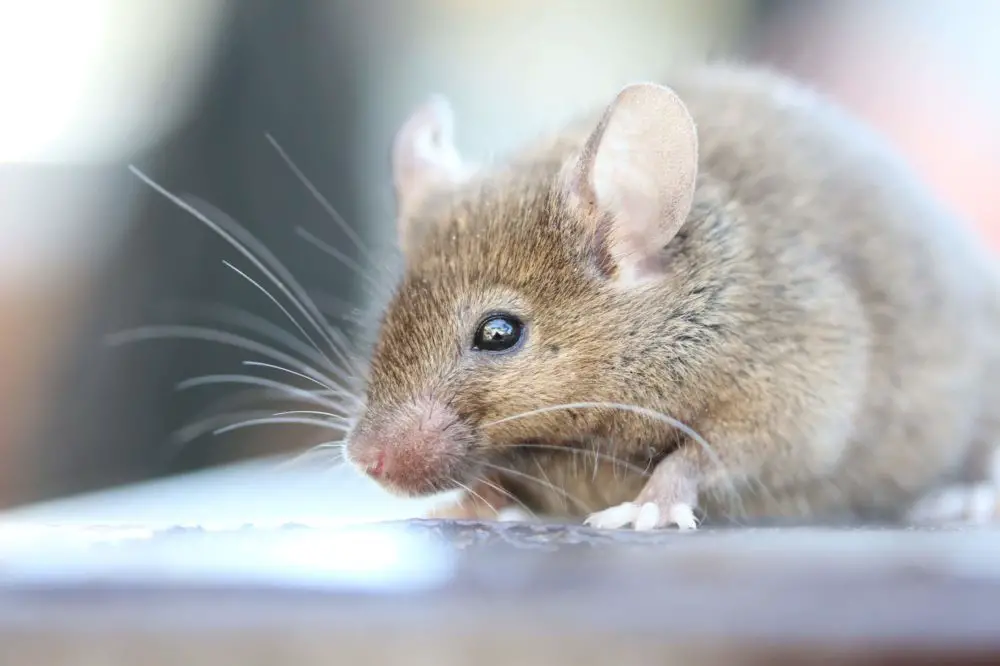
Mice are nocturnal and mostly come out at night to find food. Sudden, shining bright lights can startle and scare mice, especially ones that are not used to bright environments. This makes it unlikely for mice to visit brightly lit areas and instead, they will hide away in cracks and crevices.
However, keeping the lights on in your home isn’t going to repel mice for good. And they’ll likely just find darker areas of your house to nest in, like in your walls. And they may even become used to the bright lights and start venturing out anyways.
8. Loud Sounds

Like many small creatures, sudden loud sounds frighten mice. Loud and unfamiliar sounds will send these creatures into hiding.
But while loud noises scare them, they can remember recurring sounds and will learn not to associate it with danger in time. If this happens, that particular sound won’t send them running anymore.
9. Ultrasonic Sound
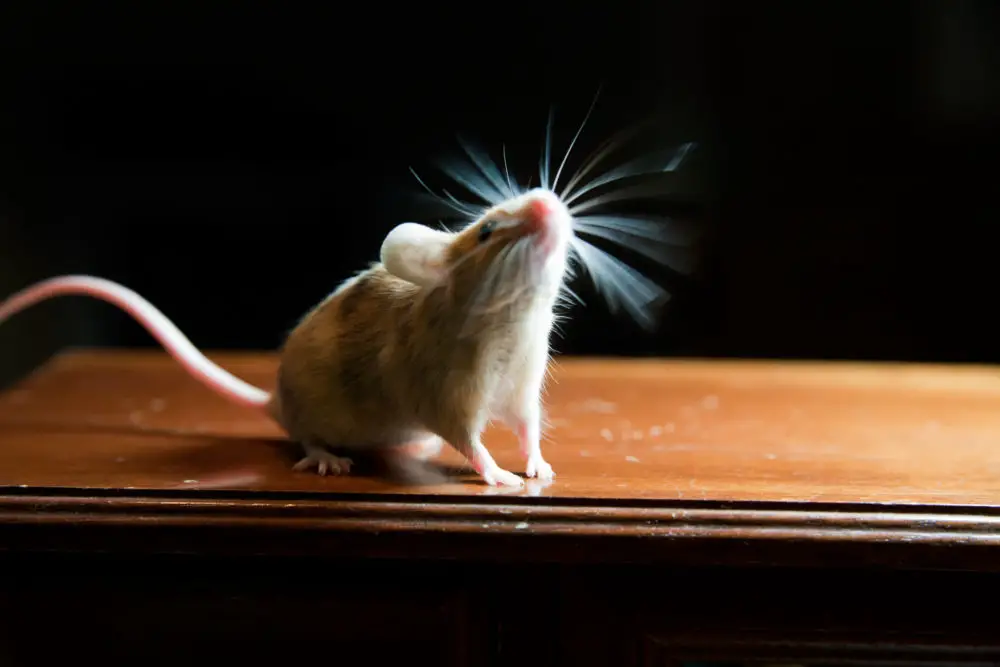
The hearing range of mice goes beyond that of humans. There’s a part of the sound frequency spectrum that is too high for human ears to pick up, but still within the detectable range of mice and other rodents, called ultrasonic sound. Mice actually communicate with each other in this frequency.
Some manufacturers have developed ultrasonic mice repellents, but the effectiveness these gadgets still debatable. While the science is sound, most ultrasonic gadgets sold commercially are not strong enough to cause mice to avoid it altogether. And for those that are strong enough, keeping them turned on regularly could allow mice to become used to them, making them useless after a time.
10. Distress Noises from other Mice
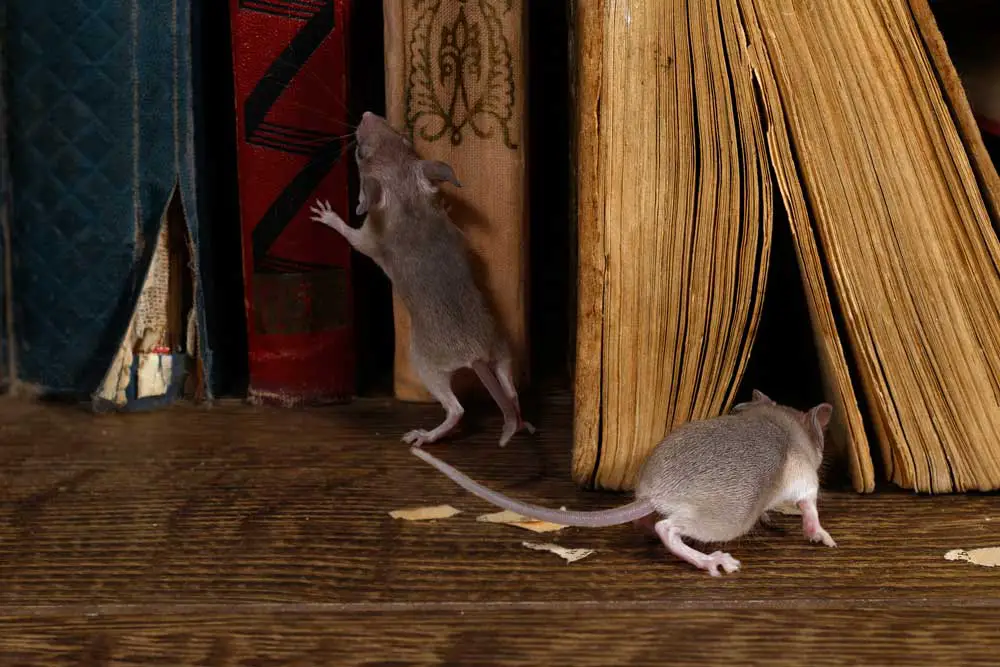
Mice communicate a lot of information vocally, including distress. Hearing distress calls can cause mice in the area to run and hide.
Using recorded mouse distress calls played around the house can work. But like other noises, mice can become accustomed to the calls and begin to ignore them.
Myths: Are Mice Actually Scared of the these Things?
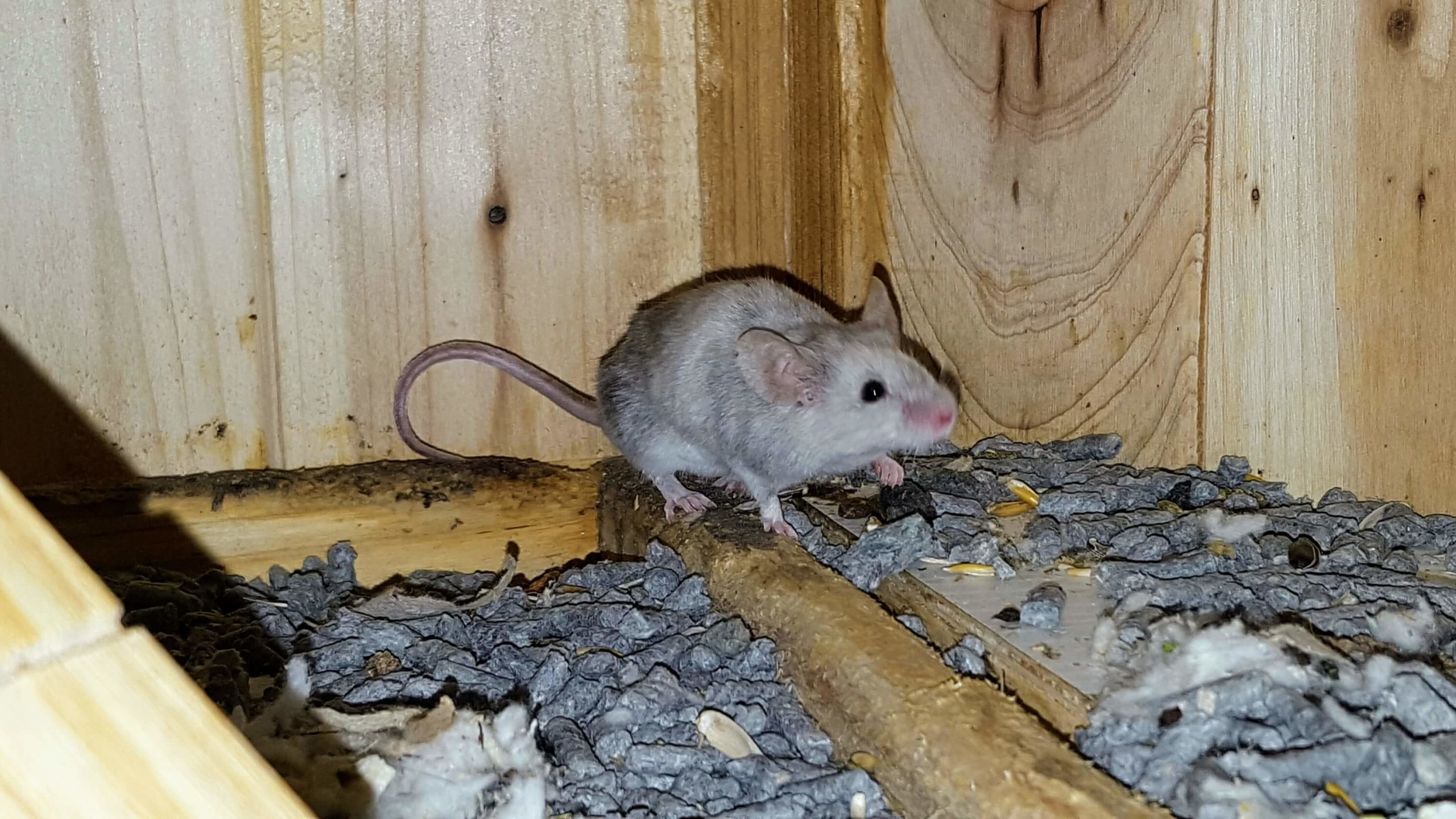
Snakes. Snakes are predators, and like cats, rats, and owls, they eat mice. But mice don’t respond to snakes in the same way they do the others. When exposed to snake odors, mice don’t respond the same way they do to cat odors, which means detecting a snake in the area by odor alone will not activate the flight response in a mouse.
Peppermint oil, cloves, chili, and other spices. Some people argue that peppermint oil and spices with strong aromas help deter mice from entering your home. But no conclusive research has shown that mice feel anxiety or experience stress when exposed to these smells.
Mothballs. It’s a common belief that mice don’t like the smell of mothballs — tiny round balls made of naphthalene or other pesticides that you leave inside your closet. However, apart from making your clothes and closet smell like mothballs, they don’t do much to deter mice.
Ammonia. Because cat urine smells like ammonia, some people think ammonia can help repel mice. In reality, even though ammonia smells so strong, it has no significant impact on mice activity whatsoever. The ammonia smell isn’t what mice associate with cats; instead, it’s a protein found in cats’ urine and sweat. Like mothballs, all ammonia will achieve is stinking up your house.
How to keep Mice out of your House
Screen windows, doors, vents and other openings around the house
Most mice that start an infestation in your property come from the outside, so you need to prevent them from getting in. While we need many openings in the house for accessibility, safety, and ventilation, screens can help keep these openings secure without impeding function.
Use steel and fine mesh wire screens designed for the area you’re trying to secure. And spend the money on quality products — they need to be able to withstand chewing and gnawing while also being fine enough a mouse can’t squeeze through.
Seal all holes in your house
Mice are small, and they can enter your house using the tiniest of cracks and holes. Even small gaps used for wiring and other utilities, are vulnerable to mice. Use steel wool or caulk to plug up and seal any possible entry points.
Store food and dispose of garbage properly
Most mice venture into households because there’s a food source. To avoid this, store your food and garbage properly. Make sure you store food in sealed, preferably air-tight, containers to keep mice from getting in. Additionally, dispose of your food waste regularly, and don’t let it linger inside your waste bin for too long.
Keep your house tidy
Like many pests, mice seek shelter in darker places. And untidy rooms with a lot of clutter create a lot attractive spaces for mice to use. Always keep stuff picked up off the floor and remove garbage regularly so it doesn’t pile up.
What to do if Mice are already Inside?
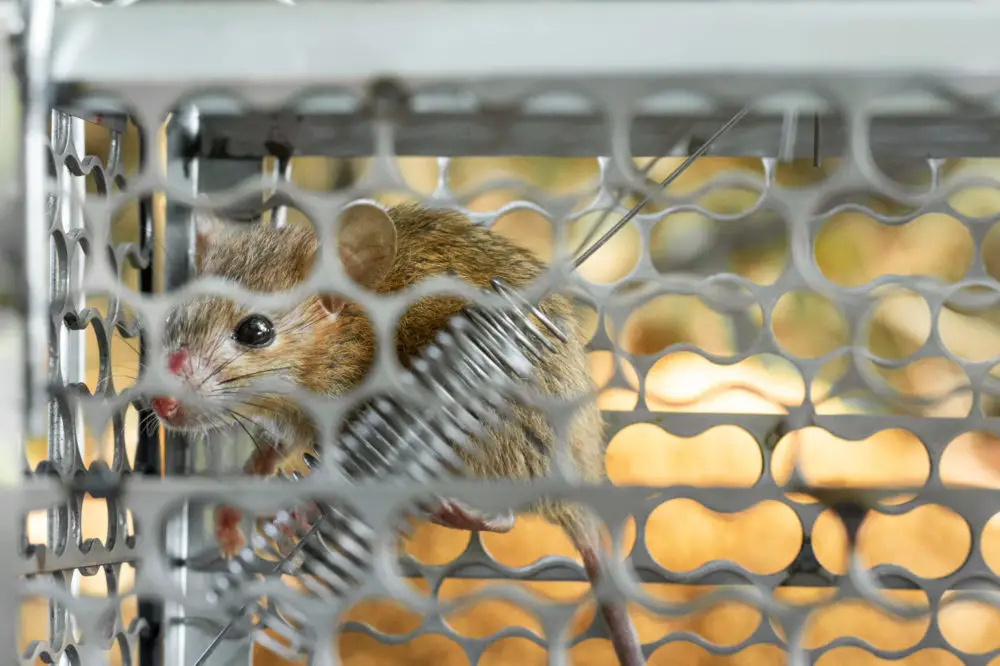
If you have a large infestation, the best way to deal with it is to call a professional pest control. For smaller problems, you may be able to handle it with traps and bait, both store-bought and DIY.
Mice breed quickly and may be in more areas of your house than you know, so if you’re unsure call pest control — they can take a look and make recommendations. You can decide from there whether to treat the problem yourself or hire them to do it.
Mice are timid and easily startled, and will avoid most things that are bigger than them or they perceive to be a threat — like predatory animals. But keeping animals like cats and dogs won’t always be enough to keep mice away. Knowing what they avoid can be helpful, but if following the tips above isn’t enough to keep them out, consider calling an exterminator.
